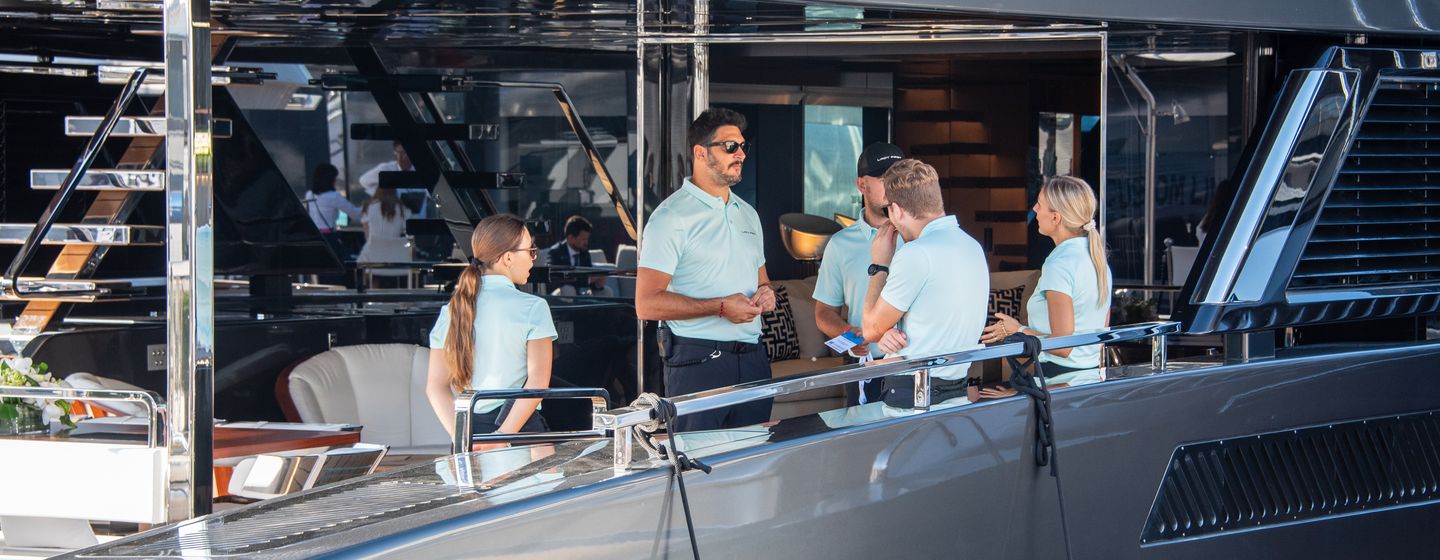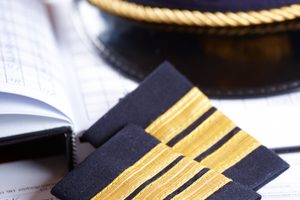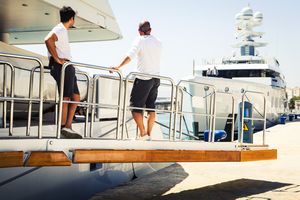Your enjoyment can be greatly enhanced when crew are employed to take care of your yacht. Professional crew will maintain your asset, provide a high level of service for those onboard, and manage many of the administrative tasks of ownership, to ensure you can simply step onboard and relax.
Depending on the size of the yacht, many yacht owners enjoy the role of chef, steward and captain as part and parcel of yacht ownership. However, legal requirements issued by flag state or country of cruising can potentially curtail this, as maritime nations issue further regulation for the responsibility of command of larger vessels, with 24m (66’) often being the dividing line into licensing requirements.
The freedom of the seas is actually limited to the guidelines of what’s referred to as safe navigation. Accepting the keys to a 100’ yacht in exchange for the final balance does not necessarily mean you’re free to switch on and throw off the bowlines. To employ a correctly qualified captain will ensure hassle free and legally safe yachting. Your involvement in planning and navigation can be as little or as much as you choose, whilst appreciating the guidance of experienced command.
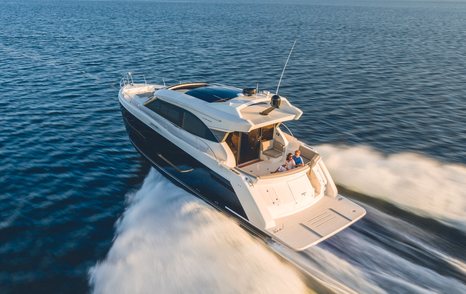
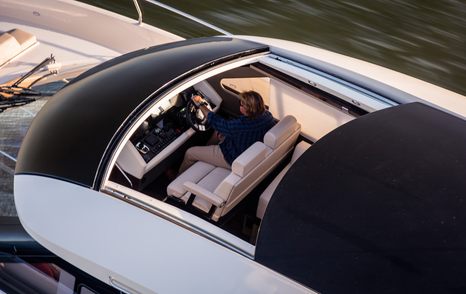
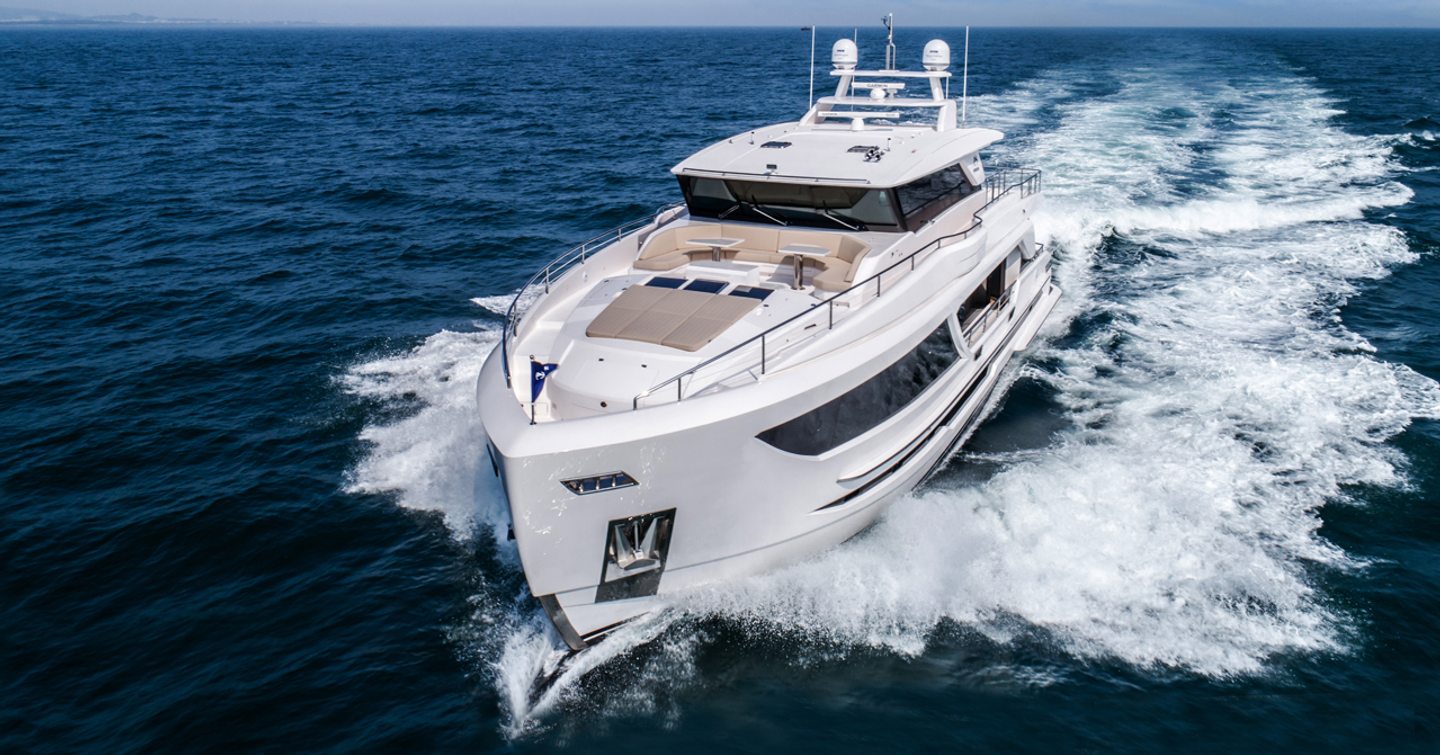
Do I Need Yacht Crew? The Basics
The well-known Yachtmaster qualification can be achieved for yachts up to 24m, for navigation up to 150 nm from a safe haven, yet to explore further afield on a larger yacht beckons the yacht owner into the realm of professional crew licensing. As the yacht size increases, requirements referred to as ‘safe manning’ come into play, which may include a 24/7 presence onboard the vessel.
It is no coincidence that yachts above 24m have crew cabins. As the yacht length increases, so does the safe manning regulations: a 30m yacht might carry five crew while a 60m may require 15 crew onboard. A yacht of 80m will carry a crew of 25-30 increasing, as many roles are on rotation.
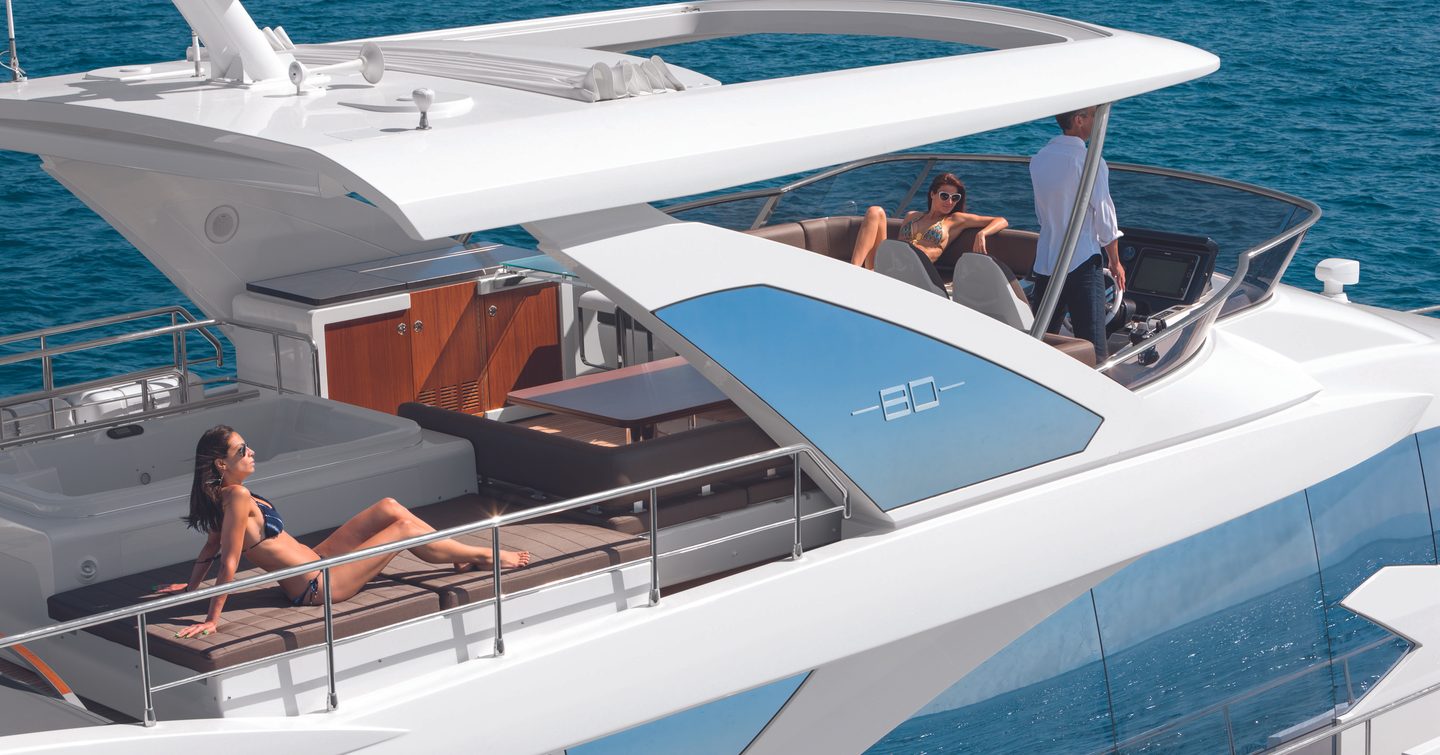
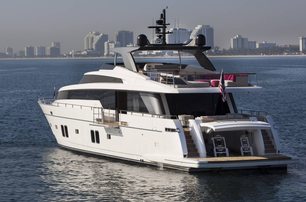
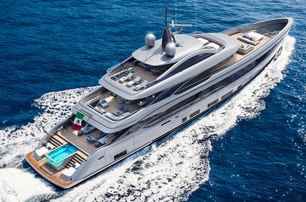
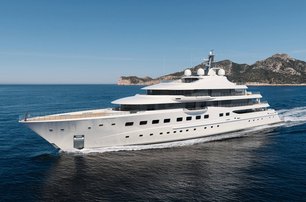
Crew Support
As a responsible yacht owner, you may well be an experienced skipper, with the skill to pilot a larger yacht; however, it simply isn’t practical to safely manoeuvre and handle a yacht above 24m as a couple or small family.
To maintain a valuable asset to the standards required to hold value, requires professionally trained crew. The cleaning of the deck and interior in addition to the maintenance of engines and the systems onboard is required before the first line is released. Yacht handling inside a busy marina in the height of summer, with all the variables that such a task brings, is not a job to be taken lightly nor short-handed.
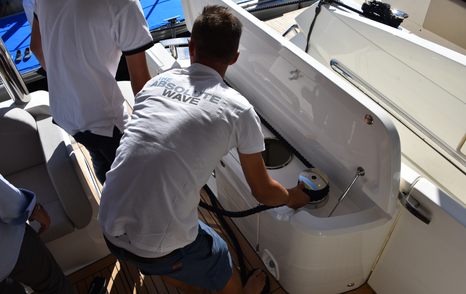
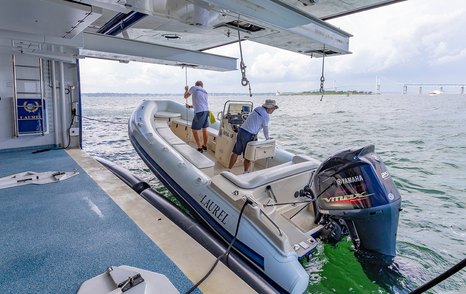
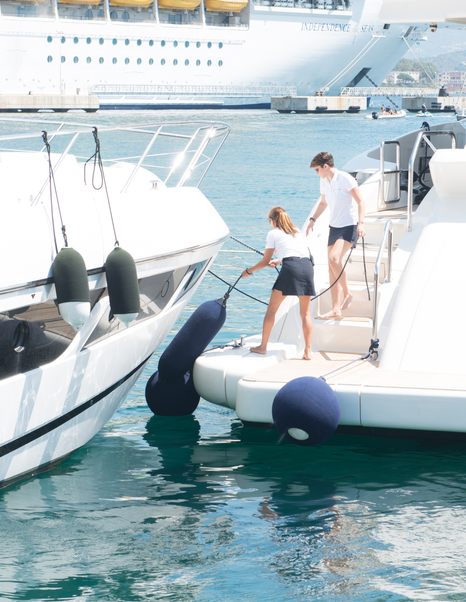
Highly Trained and Service Focused
Of course, having a crew is about more than just working the yacht, it also delivers you and your guests a level of service and care that turns a day on the water into a day to remember.
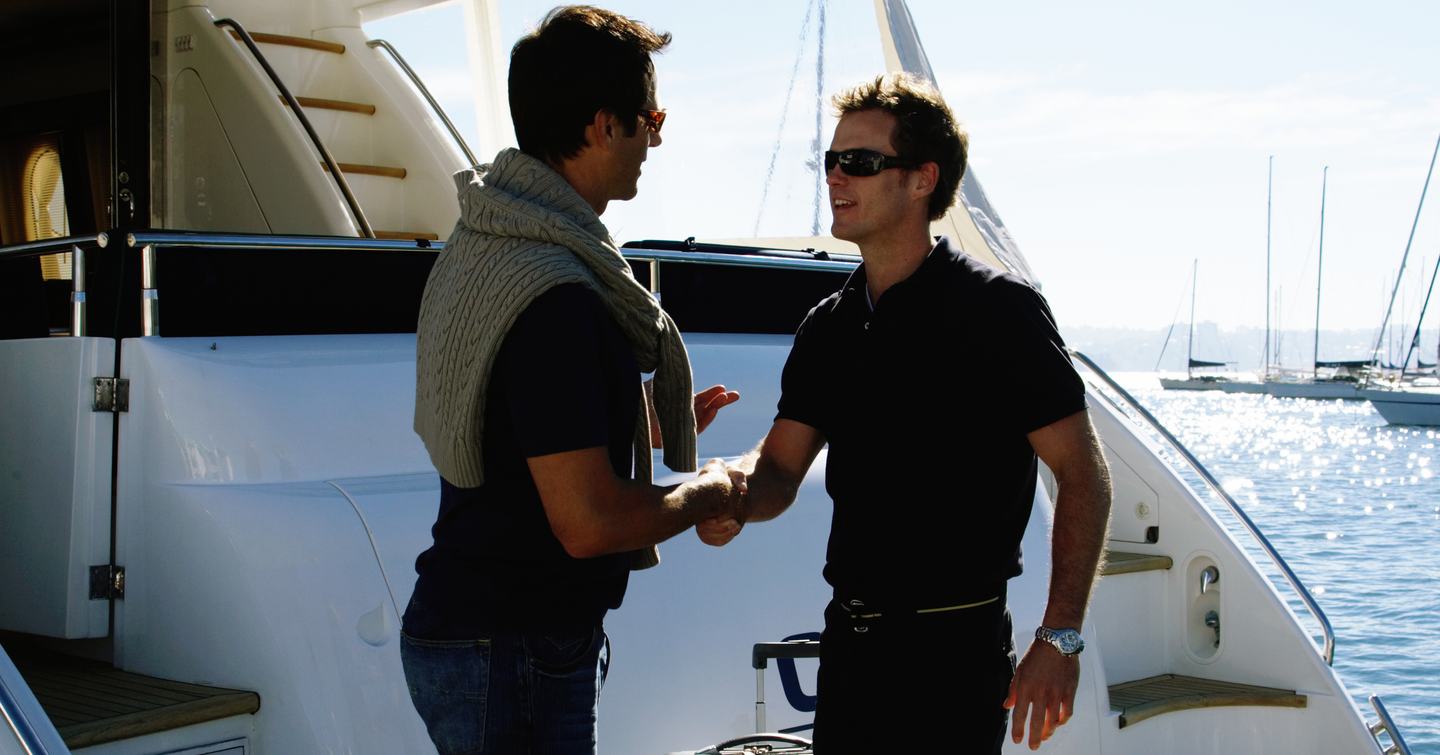
Yacht crew are highly trained and service focused, a major part of their role is making you and your guests feel special, from the moment you step aboard. A hot or cold towel on arrival, a perfectly mixed drink just the way you like it, and that’s before we get to your own personal chef.
For the owner, the relationship with the captain is key, while the ‘boss’ is away the captain will give regular updates and make sure the yacht is ready when the owner arrives. A good captain and crew is beyond value, and many owners will take their crew with them should they change yachts.
Day Skippers and Crew
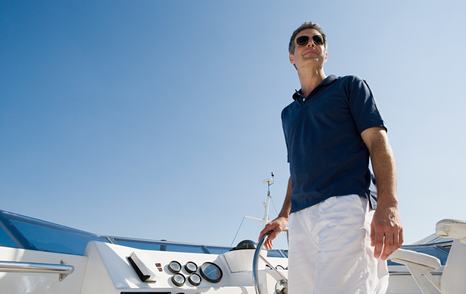
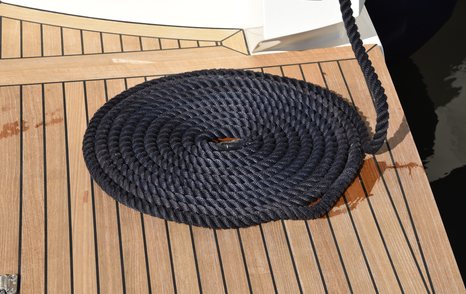
A growing trend in yachting, employing the services of a day skipper or deckhand gives you the opportunity to relax, enjoy the day and leave the serious business of navigation, helming and generally running the yacht to an experienced person.
If you plan a day out on the water with friends, employing a day skipper means you can also enjoy a drink, something that is not recommended if you are taking command of the yacht, and is illegal in many cruising areas.
Internationally Recognised Skipper Requirements
Yachts up to 24m | up to 200GRT (Gross Registered Tonnes)
At this size, the skipper may be required to hold a recognised certificate of competence. There are two prominent worldwide training organisations, The Royal Yachting Association (RYA) and International Yachtmaster Training (IYT). Whilst the two bodies offer almost identical qualifications, they are more recognised in certain parts of the world, for example, the RYA is based in the UK and well known in Europe, whilst IYT maintains a strong reputation in Canada and the USA. As a recreational yacht owner, achieving the coveted Yachtmaster certificate through either body will serve you well.
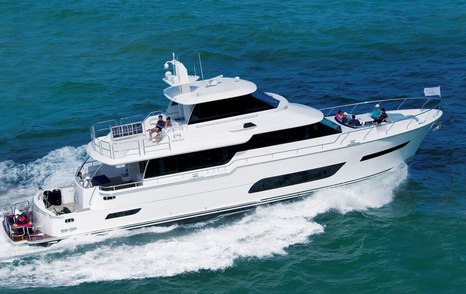
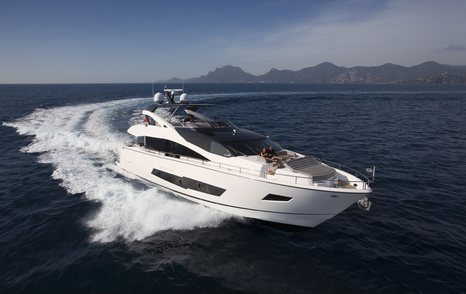
Yacht owners should, however, take into consideration their local port state authority before choosing their study path. For example, a cruising yacht in the United States will benefit from the skipper securing a US Coastguard qualification. A UK flagged vessel can bypass the need for further questioning if their Yachtmaster is issued by the RYA, complete with the Union Jack.
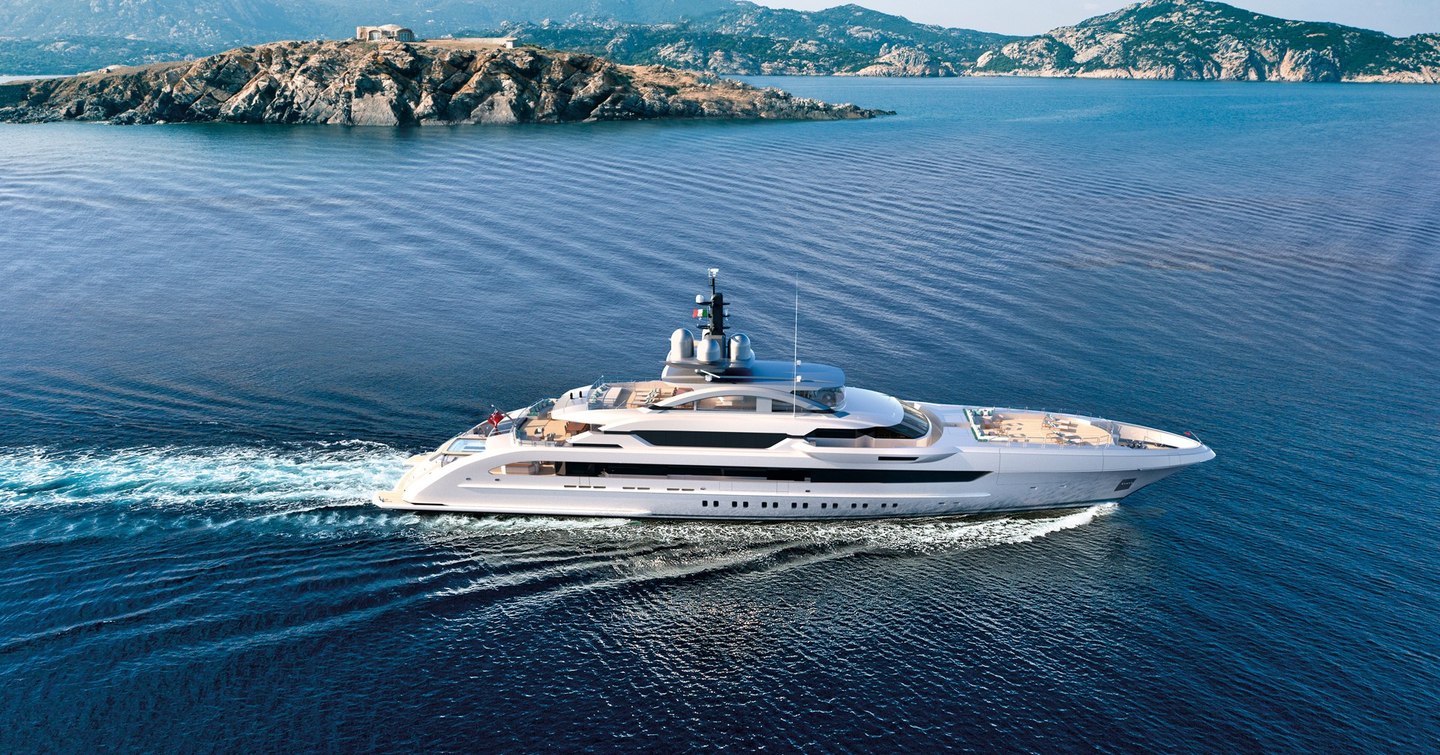
Yachts 24m+ | 200GRT - 3000GRT
A yacht from 24m (or 200 grt) upwards requires advanced qualifications to safely crew the yacht, and to adhere to the regulations of worldwide maritime authorities. The advanced certificates provide the crew with the licenses to work on both private and commercial vessels.
A yacht owner will make the decision as to whether to operate their yacht as a private vessel, for the enjoyment of family and friends, or as a commercial vessel. A commercial vessel is known as a ‘charter yacht’, where the owner secures third party income by offering their yacht to charter clients who will pay to ‘rent’ the yacht and crew for a determined period of time. This income can help offset the expenses involved in running the yacht.
The command qualifications are Master licences and adhere to the Standards of Training, Certification and Watchkeeping, commonly referred to as STCW. This certification standard, agreed upon as part of a global effort to standardise training, ensures consistency in yacht training worldwide.
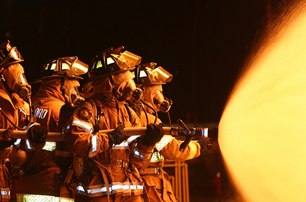
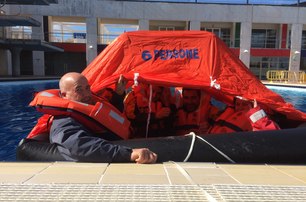
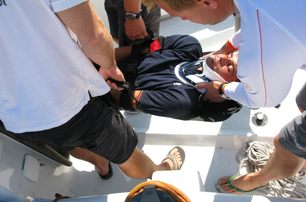
Basic training for all professional yacht crew includes the STCW modules of Fire Prevention and Fire Fighting, Personal Survival Techniques, Elementary First Aid and Personal Safety and Social Responsibilities. The training is to be refreshed every five years.
This training ensures a yacht owner is engaging yacht crew who are trained in emergency procedures and can help ensure the safety of the guests onboard.
Typical Yacht Crew Roles
Captain
The person in charge of the yacht, responsible for the safe operation of the vessel whether in port or at sea. The captain will usually take the helm during manoeuvres, although on larger yachts the First Officer may also do so.
Chief Steward/Stewardess
Stewards and stewardesses, or 'stews' as they are more usually known, are charged with ensuring the accommodation and living areas are properly presented and maintained. On larger yachts, a Chief Stew will manage a team of interior crew who will also be responsible for service duty, including silver service and mixology.
Chief Engineer
Maintaining the engines and other mechanical ancillary equipment. On smaller yachts, the Captain may undertake this role.
Deckhand
Depending on the size of yacht, multiple deckhands will take care of the yacht’s exterior, cleaning, maintaining, running the tenders, acting as lookouts and working as a team to ensure smooth safe anchoring and berthing. The deck team may also run the water toys such as personal watercraft, paddleboards etc.
50m+ Yacht - Crew Roles
Chief / First Officer
Supporting the Captain, and deputising in certain roles, this person can be viewed as second in command and often liaises between crew and Captain. On larger yachts there may a 2nd or even 3rd Officer.
Purser
Running a large yacht is akin to running a business, with paperwork, salaries, bills, and suppliers to deal with. The Purser handles such matters.
Bosun
A bosun is the lead deckhand, responsible for managing deck operations, supervising deck crew, ensuring routine safety protocols are followed and maintaining supplies and equipment for work on deck.
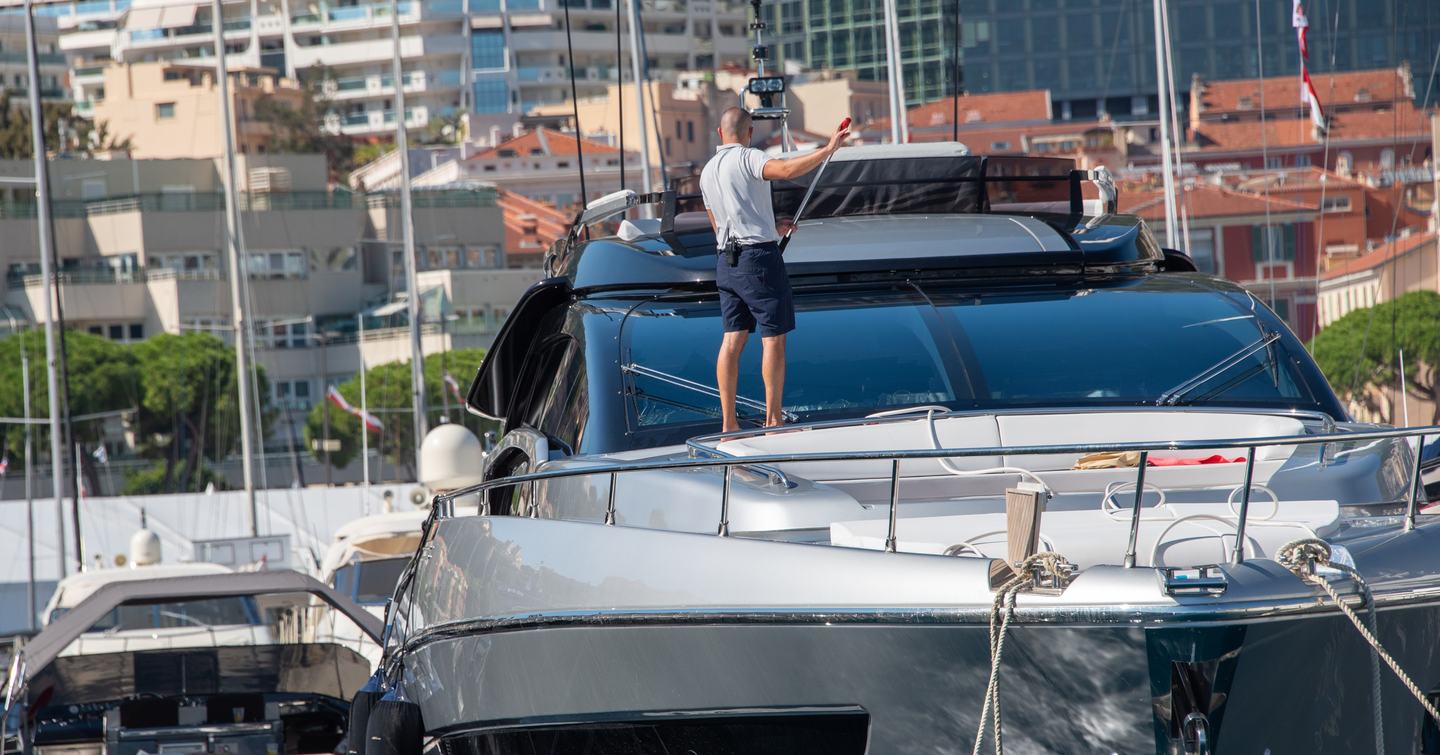
Does My Yacht Need a Crew? The Short Answers
Yachts below 18m (60ft)?
No, but you might choose to employ a qualified skipper to manage the vessel during your time onboard. This will also ensure the yacht is ready for your arrival, provisioned and cleaned.
Yachts 18m - 24m (60ft - 78ft)?
No, but the yacht may well be able to accommodate one or two crew if you so choose. This size of yacht is challenging to manage short handed.
Yachts more than 24m?
Yes. At this size crew support is highly recommended and the captain should be commercially qualified for the vessel and certified within the flag state regulations.
Yacht above 24m and 200GRT?
Yes. Yachts above 200 GRT require crew to safely and legally operate. A captain requires the correct qualifications both for running the yacht and adhering to wider safety and environmental matters.
